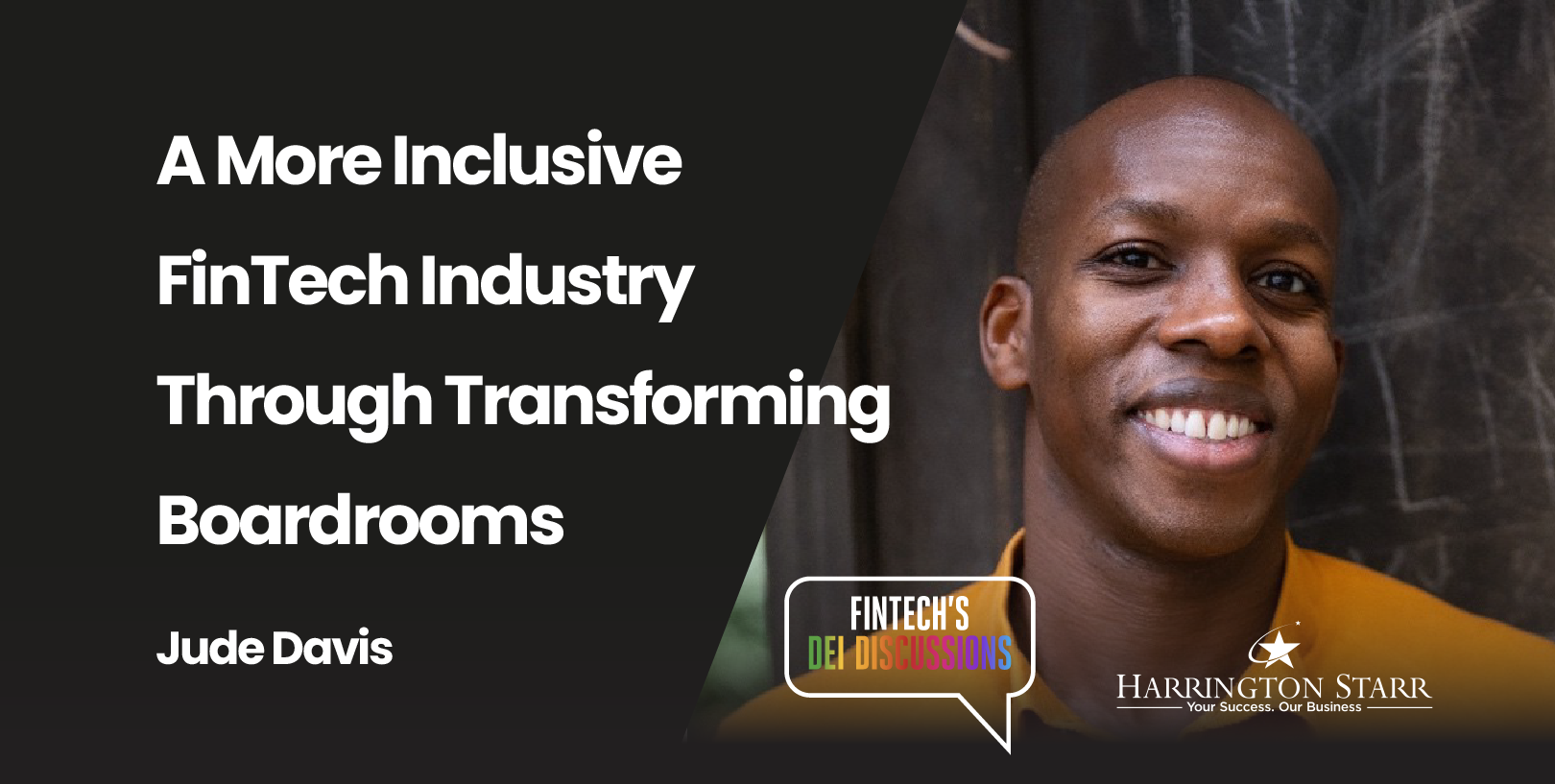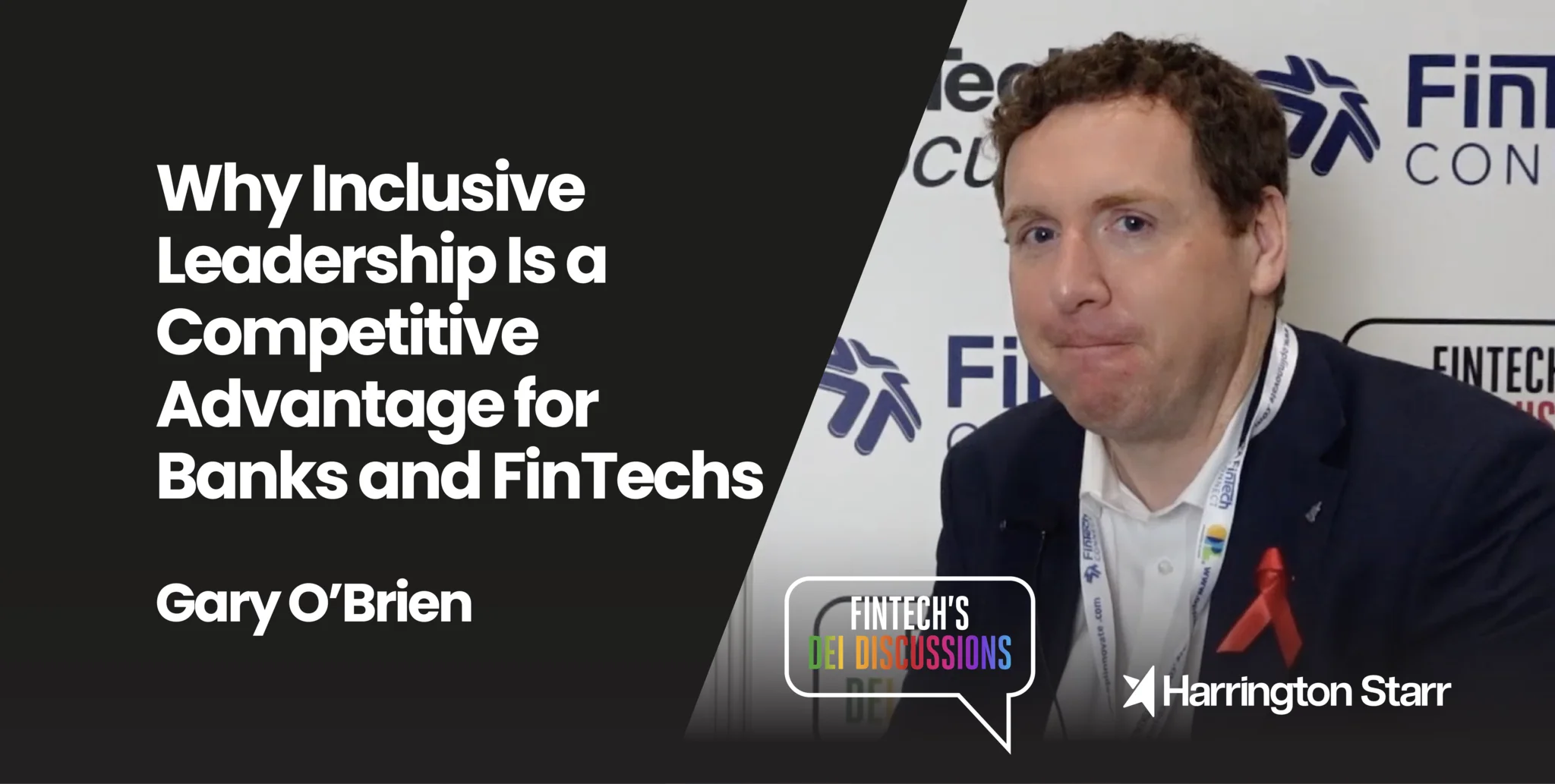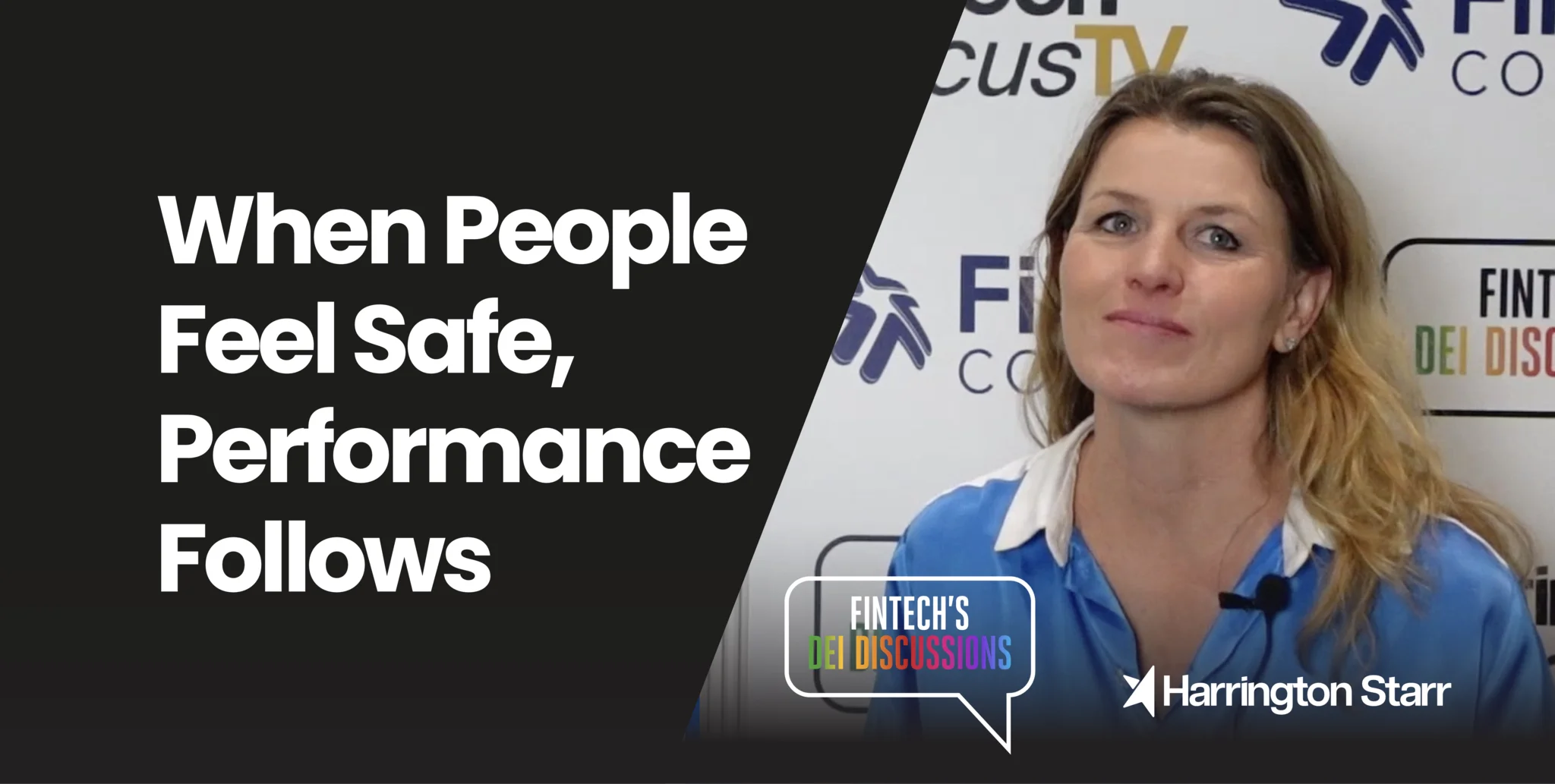As the financial technology sector continues to grow and evolve, the importance of fostering diversity and inclusion within organisations has never been more critical. The FinTech industry, known for its innovation and rapid development, is uniquely positioned to lead the charge in creating more equitable workplaces. However, this also means that the challenges related to diversity and inclusion are amplified, as the industry must navigate not only the complexities of technology but also the social and cultural dimensions that come with it.
In this episode, our host Nadia engages in a thought-provoking conversation with Jude Davis, a former Apple marketeer who has transitioned into the nonprofit sector as a leader at Olmec, a race equality organisation. Jude’s journey from the tech giant to a mission-driven nonprofit is both inspiring and full of actionable insights for anyone looking to make a meaningful impact in the FinTech industry.
Jude Davis opens up about his unique career path, starting with his experience at Apple, where he was one of the few Black individuals in a large marketing team. He reflects on the challenges he faced, often feeling alone and misunderstood, but also how he found strength and community through Apple’s employee resource group, Black at Apple. His involvement in this group became a pivotal point in his career, ultimately leading him to co-chair the initiative and grow its membership from 20 to 2,000 people.
Jude’s experience at Apple, where he was one of the few Black individuals in a large marketing team, highlights the stark reality that many minorities professionals face in the tech and FinTech sectors. Despite working for one of the world’s most influential companies, Jude often felt isolated and misunderstood. However, his involvement in the Black at Apple employee resource group gave him the support and community he needed to thrive. This experience illustrates the importance of such groups in large organisations and the critical role they play in fostering a sense of belonging among minority employees.
The transition from a corporate career to leading a nonprofit like Olmec was driven by Jude’s desire to make a more significant impact on the lives of underrepresented communities. His work at Olmec, particularly with the Black on Board programme, is a testament to the power of targeted initiatives that address specific gaps in representation. The programme’s success is not just measured by the number of participants who secure board positions but also by the broader cultural shift it promotes within organisations that engage with these newly empowered leaders.
For the FinTech industry, which is often at the forefront of innovation, embracing diversity and inclusion is not just a moral imperative—it is a business necessity. Diverse teams bring a range of perspectives that can lead to more innovative solutions, better decision-making, and ultimately, a stronger competitive advantage. However, achieving true diversity and inclusion requires more than just hiring practices; it demands a comprehensive approach that includes leadership commitment, cultural change, and continuous education.
This experience sparked Jude’s passion for diversity and inclusion, guiding him towards a new career path. He realised that his true calling was not just in marketing, but in making a significant difference in the lives of underrepresented communities. This led him to Olmec, where he now spearheads initiatives aimed at fostering race equality through economic and social justice.
Jude also brings attention to the often-overlooked contributions of minority employees who take on additional responsibilities to advance diversity and inclusion within their organisations. These efforts, while crucial, can sometimes go unrecognised or unrewarded. Jude advocates for a more equitable approach, where these contributions are acknowledged through career progression opportunities and financial rewards. This not only helps retain top talent but also signals to the entire organisation that diversity and inclusion are valued.
One of the standout programmes at Olmec is Black on Board, a leadership initiative designed to increase racial diversity in governing boards across the UK. Despite its name, the programme is inclusive of Black, Asian, Latin American, Arabic, and dual-heritage individuals. Jude explains that the programme was created in response to the alarming statistics that show less than 1% of boardrooms in the UK have Black or minority ethnic representation. This underrepresentation is stark, especially considering that 14% of the UK population is from minority ethnic backgrounds.
"Black on Board is about getting individuals on boards, but it also is about boosting the confidence of those groups," Jude shares. He highlights the programme's success, noting that over 75% of graduates either secure board positions or receive promotions, thanks to the confidence and skills they gain.
The Black on Board programme is comprehensive, featuring master classes, online modules, and self-study opportunities, all designed to equip participants with the knowledge and confidence needed to excel in board positions. The programme covers essential topics such as legal governance, finance, and personal branding, with sessions led by industry experts, including CEOs, professors, and current board members.
Jude also discusses the broader impact of diverse thinking at the board level. He emphasises that diverse boards are not only more innovative and creative in problem-solving but also more profitable. He cites the McGregor Report from 2017, which claimed that if race discrimination were eliminated, it could add £24 billion to the UK economy. This highlights the financial and ethical imperative for companies to prioritise diversity and inclusion in their leadership structures.
Throughout the conversation, Jude stresses the importance of leadership in driving change. "Leadership have such a key role in implementing inclusion and diversity. If a leader at the top doesn’t care about inclusion and diversity, that trickles down to the rest of the team," he notes. This insight is crucial for companies within the FinTech industry, where leadership decisions directly impact company culture and the inclusivity of workplaces.
Jude also addresses the common challenge faced by minority groups who often bear the burden of advancing diversity and inclusion initiatives within their organisations. He calls for more support and recognition for these efforts, advocating for tangible rewards such as career progression and financial compensation.
"It's not fair that these minoritised groups are made, not, they're not made to, but they want to because they really care about it and they want diversity and inclusion to be at the forefront of these companies. But I think for individuals who don't really see themselves in a minoritised group, they've got to be doing more to support those individuals," Jude asserts. His call to action is clear: diversity and inclusion should not rest solely on the shoulders of those who are underrepresented but should be a shared responsibility across all levels of an organisation.
The conversation also delves into the importance of creating safe spaces within organisations where minority groups can express their concerns and ideas without fear of judgment. Jude advocates for a company culture that genuinely embodies diversity and inclusion, beyond just a statement on a website. He believes that inclusion should be part of the company’s DNA, influencing every aspect of the business and every individual within it.
As the discussion concludes, Jude offers practical advice for companies looking to advance their diversity and inclusion efforts. He emphasises the need for accountability, suggesting that companies should establish clear KPIs for diversity and inclusion and regularly assess their progress. "It needs to be tested. What are the KPIs for inclusion and diversity? What are the objectives? And setting them out from the start, but then also not testing, but just checking that those objectives are met," he advises.
Jude’s journey from a successful career at Apple to leading a nonprofit organisation is a powerful example of how purpose-driven work can lead to meaningful change. His insights into the challenges and opportunities within diversity and inclusion are invaluable for anyone in the FinTech sector, especially those in leadership positions.
The conversation with Jude Davis is a powerful reminder that while progress has been made, there is still much work to be done to achieve true equity in the FinTech industry. It challenges both individuals and companies to reflect on their own practices and consider how they can contribute to a more inclusive future. Whether it’s through leadership, recruitment, or day-to-day interactions, everyone has a role to play in advancing diversity and inclusion.
At Harrington Starr, we believe that promoting diversity, equity, and inclusion is not just the right thing to do—it’s essential for the growth and success of the FinTech industry. As a FinTech recruitment business, we are committed to helping companies build diverse and inclusive teams that drive innovation and excellence. This episode is a must-listen for anyone looking to make a difference in their organisation and contribute to a more equitable future in FinTech.
For anyone who found this episode intriguing, download our ‘Elevating Black Talent’ guide, click the link below for more information:






